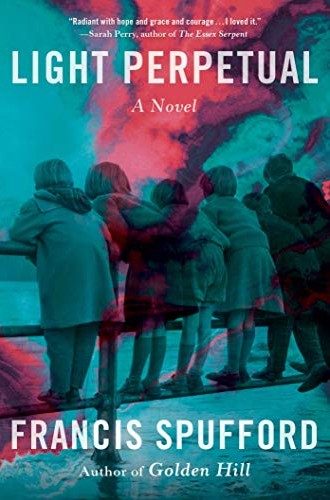15 London children died in a World War II attack
Francis Spufford’s novel imagines the lives they might otherwise have led.
During World War II, a 1944 attack on a London Woolworths store killed 168 people, including 15 young children. This tragedy is the starting point for Francis Spufford’s latest novel, which he says “is partly written in memory of those South London children, and their lost chance to experience the rest of the twentieth century.”
Light Perpetual follows the lives of five fictional children—Jo, Val, Vern, Alec, and Ben—by tracing trajectories that might have been. The first section of the book imagines the children’s futures five years after the bombing; from then on, the sections are structured in 15-year intervals. In each section, brief vignettes give momentary but memorable glimpses into the lives and personalities of these richly drawn characters. Jo is an aspiring musician who never makes it as far as she wants to; her sister Val falls in with a skinhead and has to reckon with her complicity in a horrible crime; Vern cons his way through business projects while harboring a quiet love of opera; Alec juggles family, labor disputes, and his intellectual curiosity; and Ben struggles with his mental health before finding a lover and faith that, together, heal him.
Spufford’s background as a nonfiction writer shines through in this impressive rendering of 20th-century London. Whether he is depicting the process of typesetting, the monotony of working on a double-decker bus, or the affective energy that accompanies listening to music, Spufford hits the mark in portraying the small mundanities that compose a life. The characters’ vignettes are written with intimacy, but the novel resists collapsing into sentimentality.





